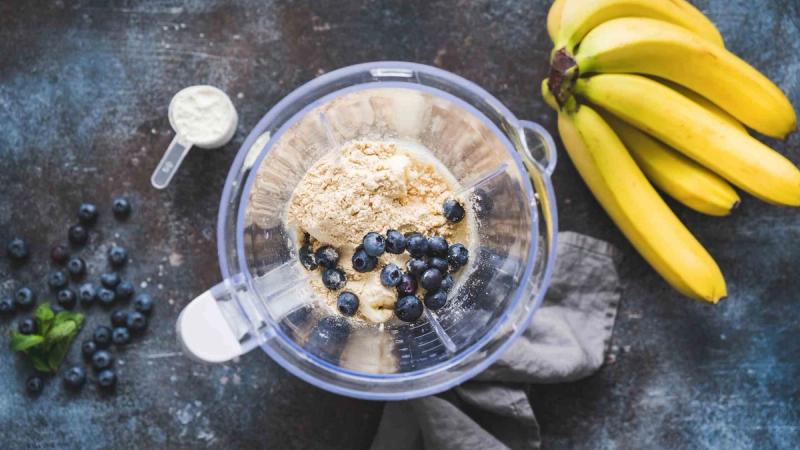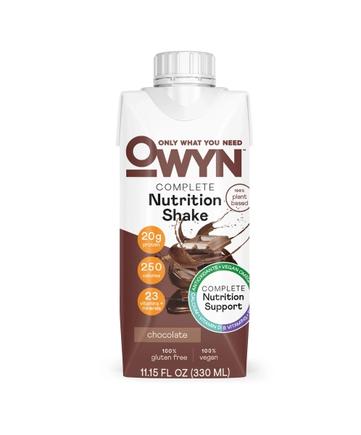Save 10% OFF All Subscription Orders.
Save 10% OFF All Subscription Orders.

Discover the vital role of a high-protein diet in enhancing the effectiveness of GLP-1 medication. Learn how incorporating protein-rich foods into your daily meals can optimize blood sugar control and support overall metabolic health.
The Role of a High-Protein Diet in GLP-1 Medication Management
Adopting a dietary regimen that supports overall health is important while taking GLP-1 medications. Among the dietary considerations, a high-protein diet is paramount for individuals relying on GLP-1 therapy. Protein plays a dual role in diabetes management and support for those undergoing GLP-1 treatment.
Understanding GLP-1 Medications and Protein's Role
GLP-1 medications work by mimicking the actions of a hormone called glucagon-like peptide-1, which helps regulate blood sugar levels. These medications help control blood sugar by increasing insulin secretion, reducing glucagon secretion, and slowing down the emptying of the stomach. GLP-1 medications can support weight loss, manage blood sugar, and improve metabolic health.
Benefits of a High Protein Diet for GLP-1 Patients
For individuals undergoing GLP-1 therapy, adopting a high-protein diet offers several advantages tailored to their unique needs:
1. Enhanced Blood Sugar Control: Protein-rich foods have lower impact on blood sugar levels compared to carbohydrates, facilitating more stable glucose levels throughout the day. This synergizes with the effects of GLP-1 medications, contributing to improved glycemic control.
2. Satiety Promotion: Protein's satiating effect helps satisfy hunger and reduces the urge to overeat, supporting weight management efforts. GLP-1 patients with increased satiety can maintain a healthy eating pattern and prevent dramatic blood sugar fluctuations.
3. Muscle Preservation: Preserving lean muscle mass is crucial for individuals with diabetes, as it influences metabolic rate and glucose utilization. A high-protein diet alongside physical activity aid in muscle maintenance, complementing the metabolic benefits of GLP-1 medications.
4. Weight Management Support: High-protein diets have been associated with greater weight loss and fat loss, while preserving lean tissue. For GLP-1 patients aiming for weight management, this dietary approach aligns with treatment goals, promoting better metabolic outcomes.
Incorporating Protein into the GLP-1 Management Plan
To optimize the benefits of a high-protein diet for individuals on GLP-1 therapy, practical dietary strategies include:
1. Prioritizing lean protein sources such as tofu, tempeh, and legumes.
2. Balancing meals with a mix of protein, healthy fats, and fiber to support overall nutrition.
3. Incorporating protein-rich snacks to maintain satiety between meals and prevent over-snacking. Examples include chia seed pudding, edamame, roasted chickpeas, hummus and veggies, and of course, OWYN shakes and recipes!
4. Consulting with a healthcare professional or dietitian to personalize dietary recommendations and ensure alignment with individual health goals.
Protein plays a vital role in diabetes management, particularly for individuals undergoing GLP-1 treatment. Embracing a high-protein diet offers tailored benefits that align with the mechanisms of GLP-1 medications, including enhanced blood sugar control, satiety promotion, muscle preservation, and weight management support. By incorporating protein-rich foods into their daily meals and snacks, GLP-1 patients can help improve their overall health and well-being.

Why Protein is Key for Reaching Weight Loss Goals
Are you looking for the key nutrient for weight loss? Read on to learn about the importance of protein.

Why Getting Enough Protein is Essential For Overall Health
Are you looking to improve your overall health? Protein has an abundance of health-promoting benefits.

Chocolate Dipped Strawberry Protein Shake
Craving something that tastes like dessert but still delivers on nutrition? The Chocolate Dipped Strawberry Protein Shake is rich, refreshing, and perfect as a post-workout boost, afternoon pick-me-up, or anytime you want a chocolatey, feel-good treat.


